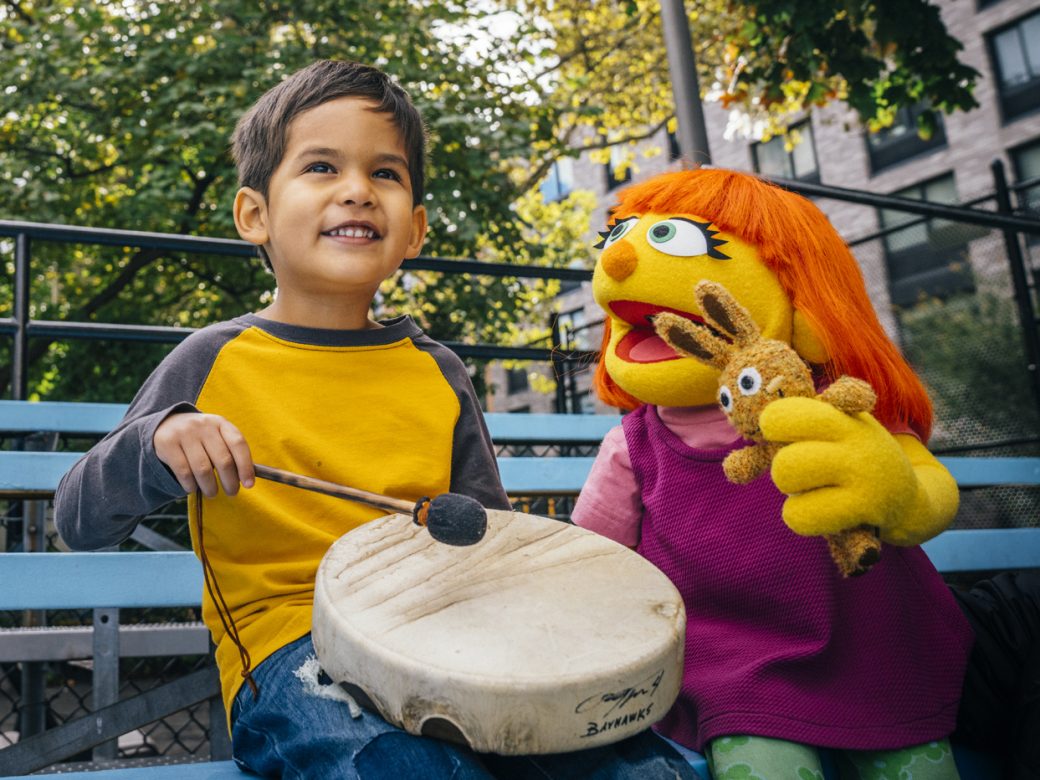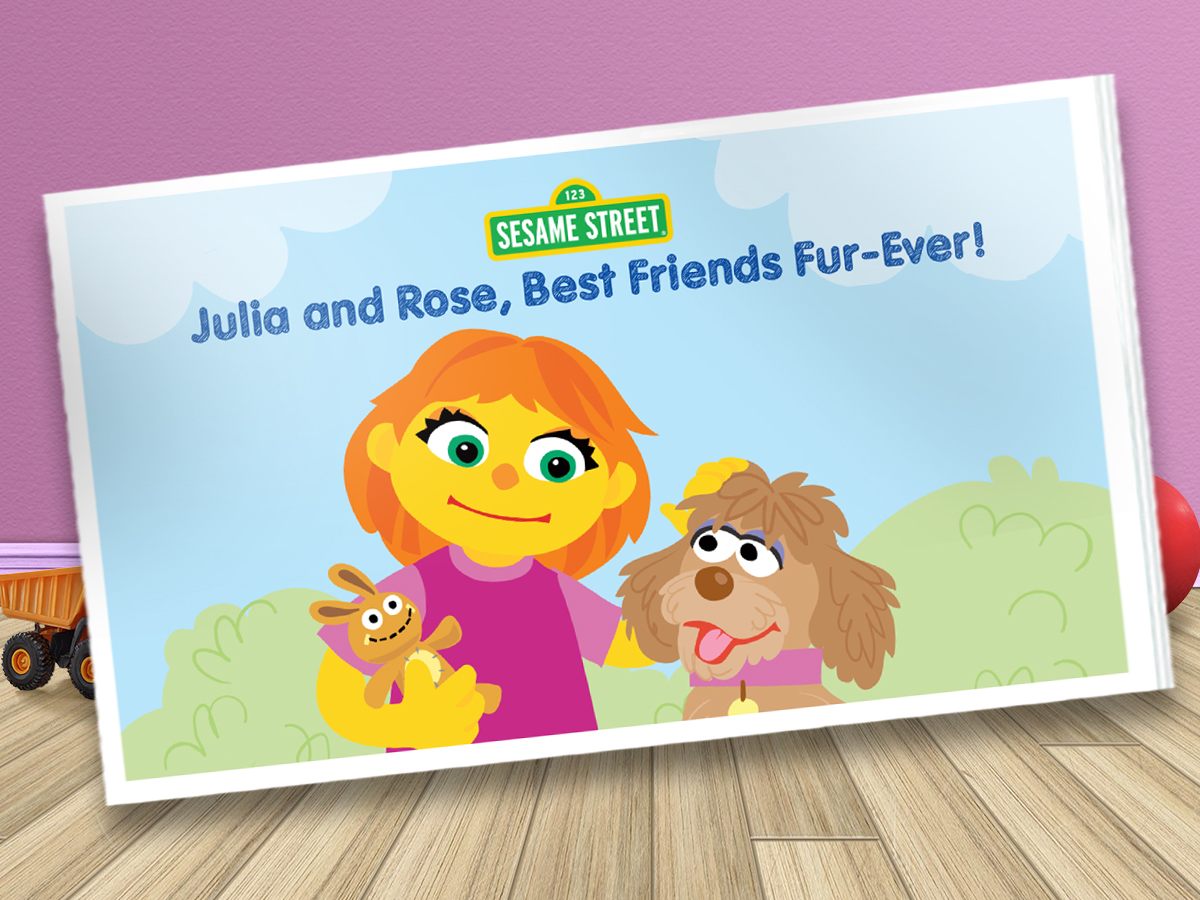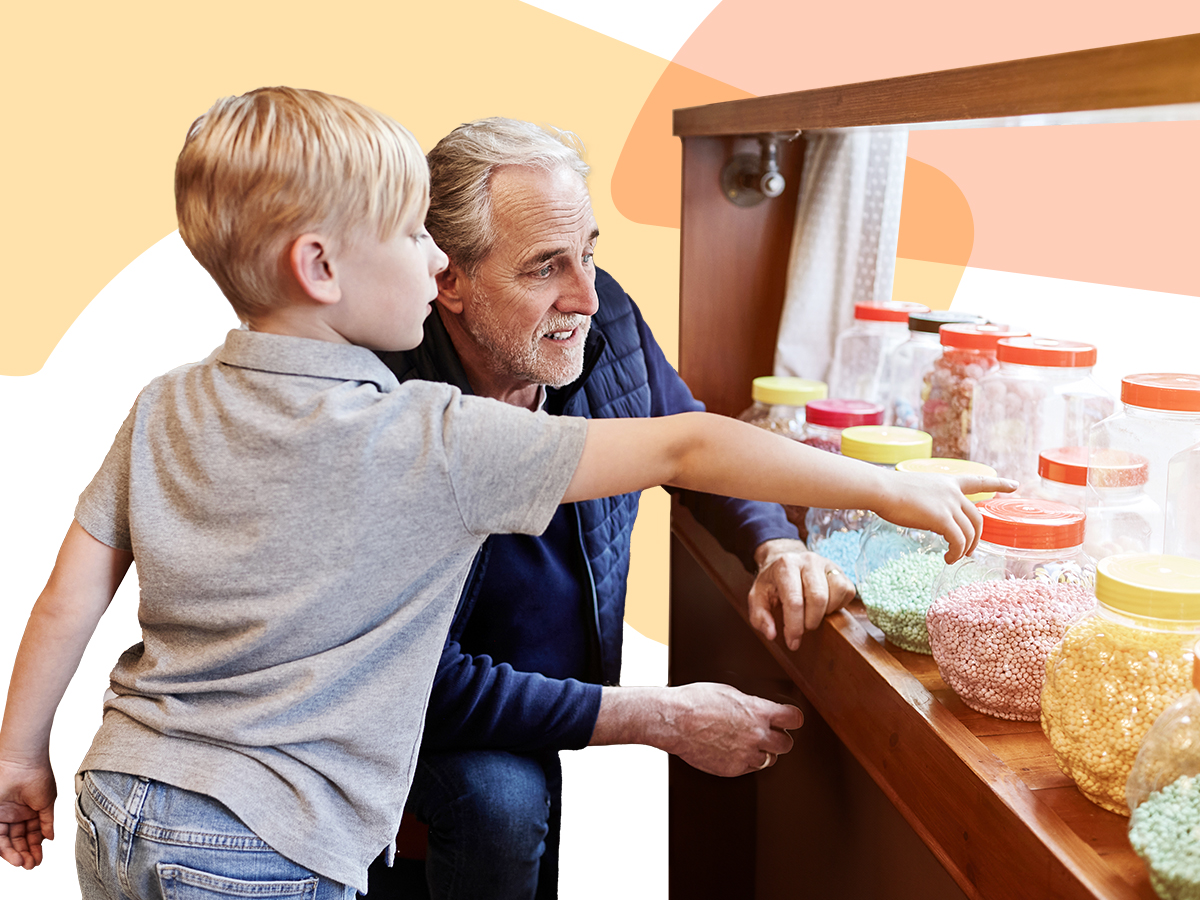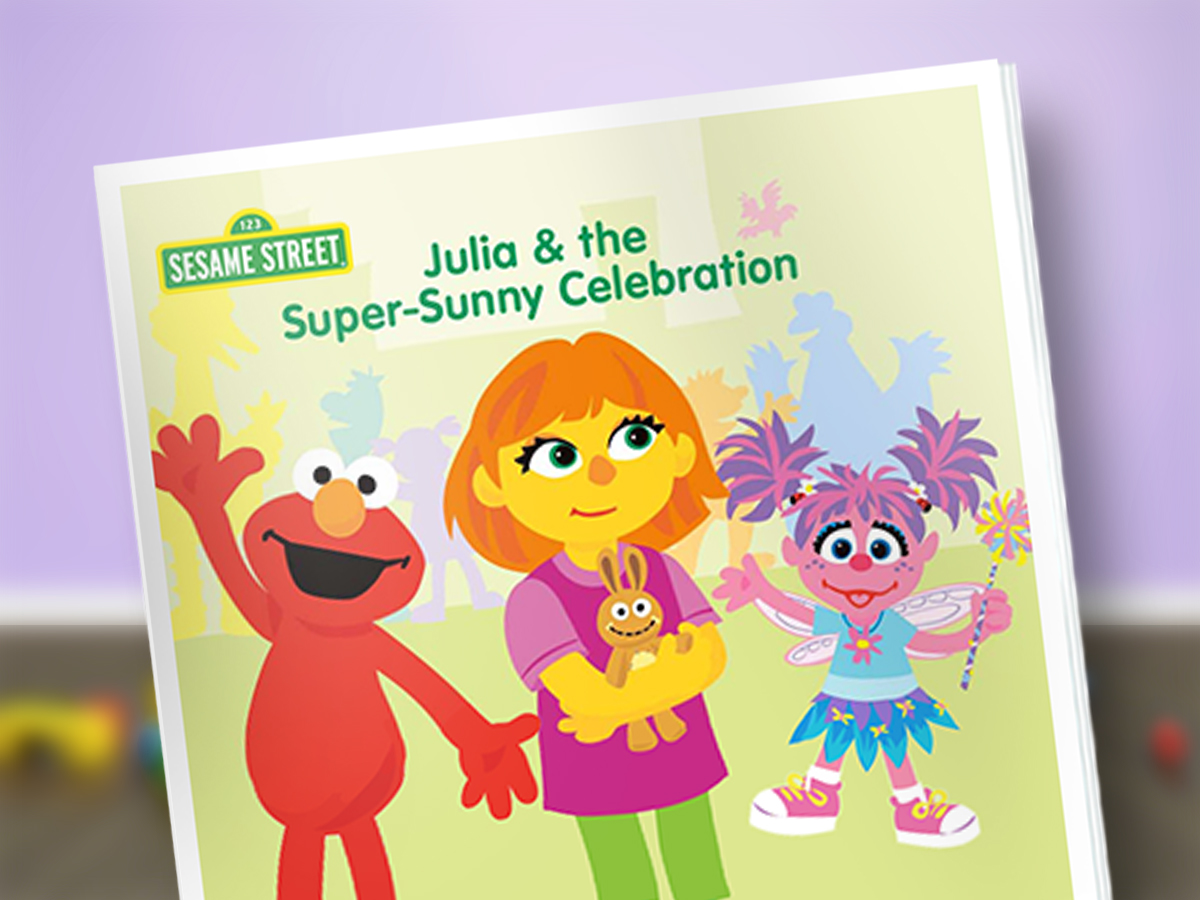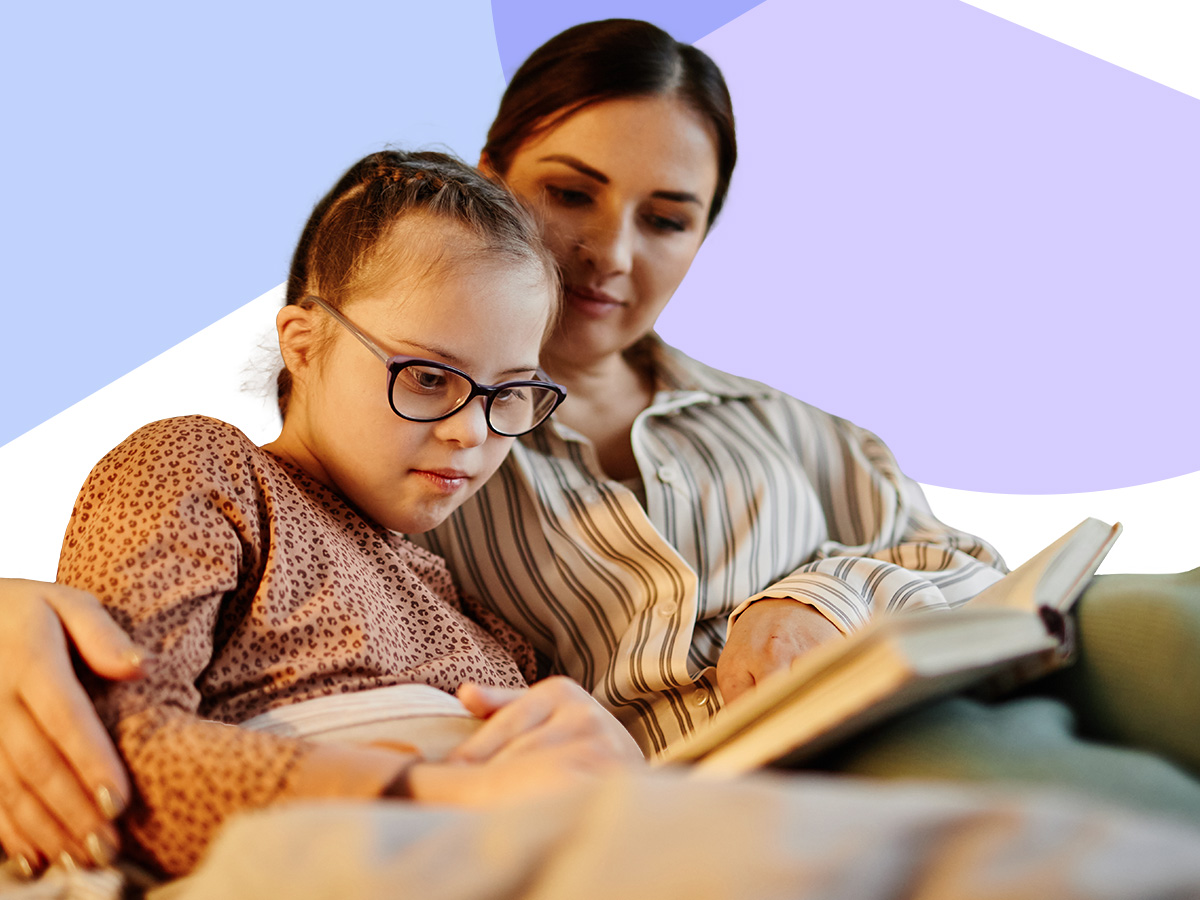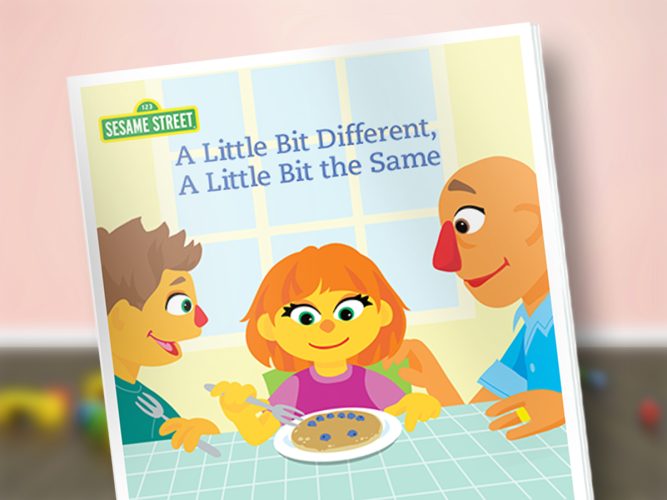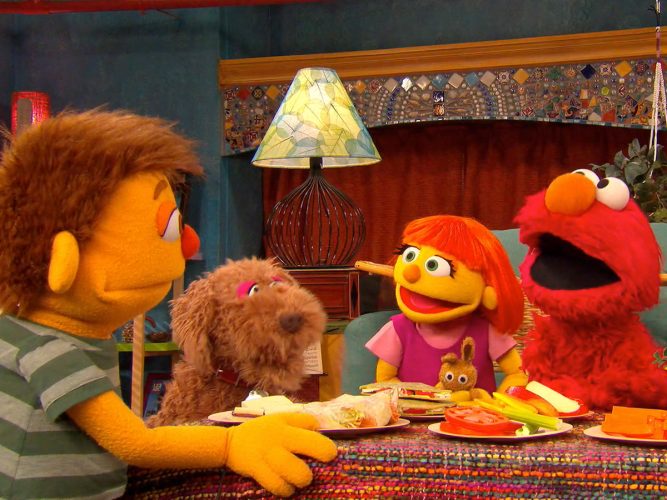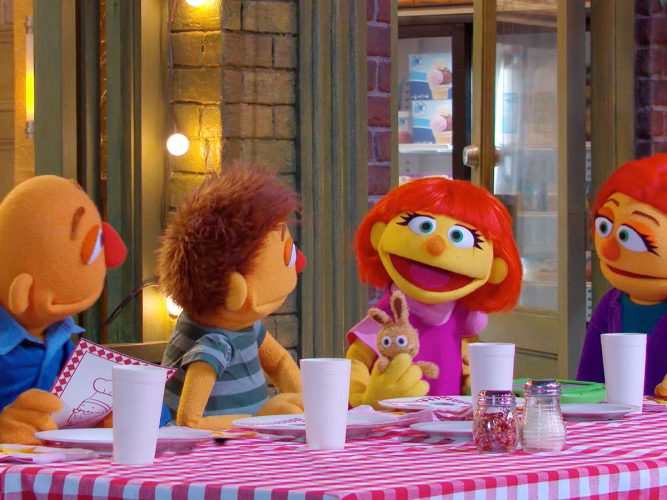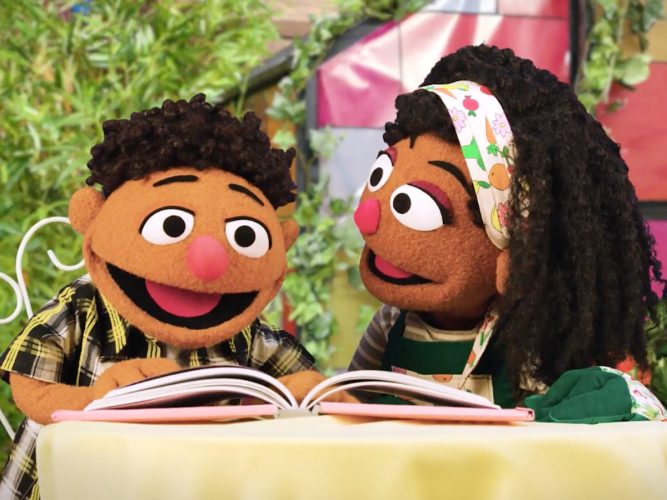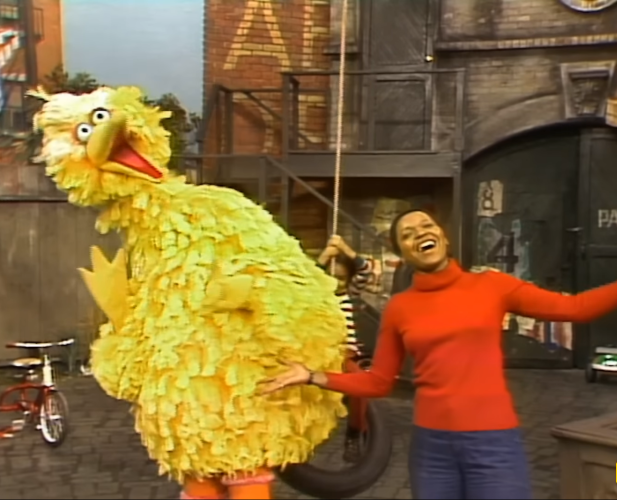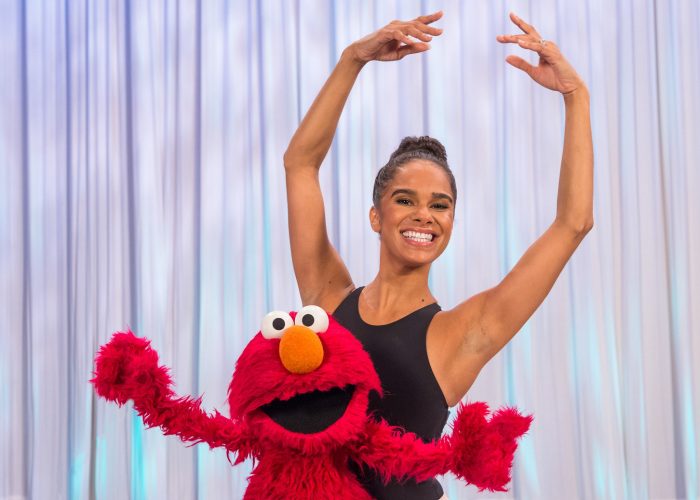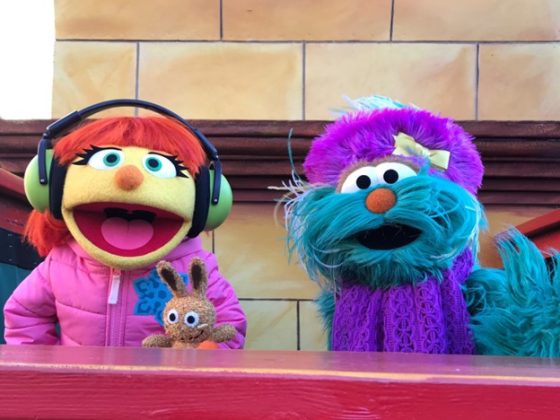
5 Ideas for Grown Ups That Let Autistic Children Shine
There are lots of exciting ways Julia practices being independent with help and guidance from her family.
One of the unique challenges of parenting is addressing your child’s specific needs. Creatively finding solutions to help your little one grow smarter, kinder, and stronger is a wonderful riddle to solve. But it can be a complex one!
Knowing your child has autism means knowing that they have a whole spectrum of capabilities, personality traits, likes, and dislikes that may be distinct from those of their peers. However, the definition of autism doesn’t lie in just their differences, even if those differences may determine how an autistic child interacts with the world.
Julia is a 4-year-old autistic girl living on Sesame Street with her mom, dad, and big brother, Sam. She has a special interest in art and uses an augmentative and alternative communication device (AAC) to talk at times. She has a big heart and she’s always ready to show her excitement about the world around her and how much she cares about her friends!
Julia’s parents frequently create unique solutions to ensure she keeps learning, growing, while exercising her early independence. Here are 5 wonderful resources for parents—from Julia’s parents—that you can try too.
1. Offer Your Child Opportunities to Love and Care For a Furry Best Friend
Julia absolutely loves her dog, Rose! Having Rose by her side helps Julia feel supported and gives her someone to care for and love. Walking, bathing and feeding Rose are all fundamental opportunities for Julia to accomplish important, kind tasks independently as well as with the help of her family.
The relationships children develop with their pets are uniquely sweet, heartwarming and unconditional. To get a glimpse into the loving mutual bond Julia and Rose share, read through the storybook, “Julia and Rose, Best Friends Fur-Ever.”
2. Complete Chores Around The House Together
Household chores don’t have to feel like…well, chores! Chores aren’t just about keeping things tidy. They also help establish routines, which make our days flow smoother as we go through the week. Having someone by our side, explaining big tasks and then breaking them down into smaller steps, not only helps children learn life skills, but also encourages their independence.
Completing a set of chores together can also offer a time for bonding and celebration. You might even share a laugh if things don’t go as planned, like when Julia and her dad wash Rose, who decides she doesn’t need a towel to dry off!
For some creative activity ideas, check out the Super Helper, Time for a Treat and Where Should We Go printables.
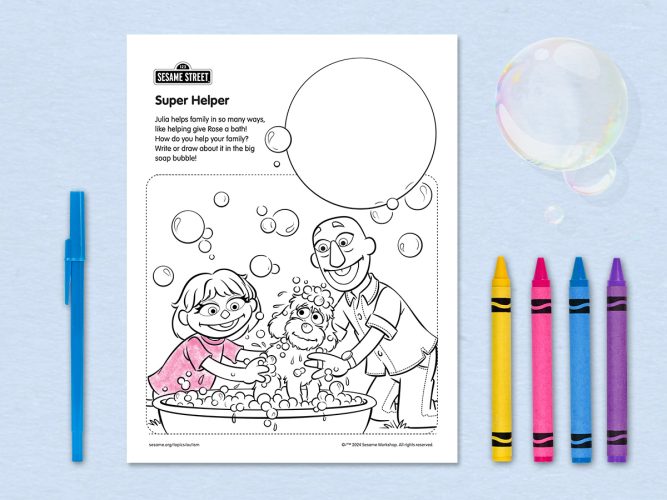
Super Helper
Finding ways to help their family can be a great way for autistic children to build skills and pursue goals. Download and share this autism-friendly coloring activity.
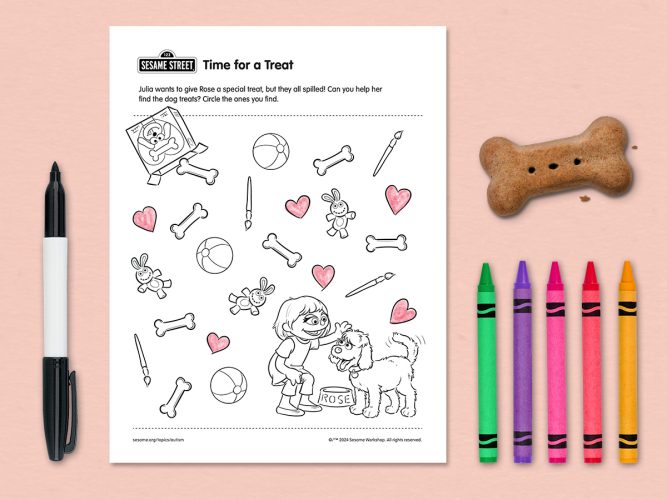
Time for a Treat
Sometimes autistic children—and all children—need a little help from others to reach their goals. Download this printable for an autism-friendly coloring activity to help explore focus and persistence.
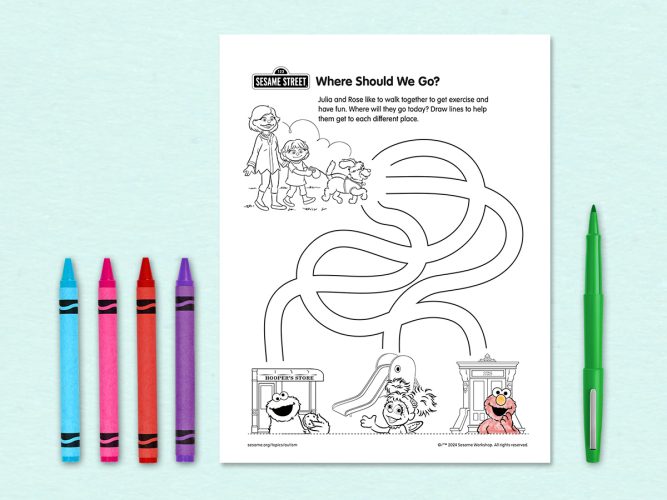
Where Should We Go?
Even taking a walk around the neighborhood can offer opportunities for autistic children to make choices—and have fun! Use this autism-friendly coloring activity to help kids develop their decision-making.
3. Develop Self-Determination Skills by Helping Your Child Identify Personal Preferences
If your child is still learning to communicate their own interests, you can guide them through playful activities to get ideas flowing. Small, safe choices such as picking between two different pre-selected fruits or choosing between two books, can help them become more confident in their preferences in the future.
Encouraging your autistic child to do something based on their preference establishes self-determination that can eventually lead to exploring something new on their own. Confidence also grows from being able to discontinue an activity or removing a choice that your child doesn’t want to try at the moment.
Build trust and encourage self-determination with short games like This or That, What If and What Else explained in detail in this article.
4. Build Confidence and Belonging by Making Big Events Feel Safe
Participating in big group events helps us feel a sense of belonging. It feels good to be part of something larger than ourselves. Feeling accepted during large scale activities, especially in diverse settings, brings us closer with friends—old and new alike!
Big settings—such as street fairs, festivals, birthday parties, or even the Thanksgiving Day Parade—also mean big sounds, such as fireworks, music, and loud chatter. When Julia attends events like these, she brings along her noise canceling headphones, her talker, and stuffed rabbit Fluffster, to help her feel comfortable.
These accommodations make a huge difference as they help Julia communicate, play and feel a sense of ease if she becomes overwhelmed. Having her friends there for her, playing and communicating in a way that works best for her, means Julia can continue to build the confidence she needs to keep attending and having fun.
You can check out the book “Julia & the Super-Sunny Celebration” in English, Spanish, Cantonese and Mandarin and even view it as an interactive to see how Julia handles the hustle and bustle of a street fair.
Also excitingly, when other autistic children see Julia using her accommodations, such as her noise-canceling headphones as she rides on the Sesame Street float in the Thanksgiving Day Parade, they see themselves in her.
We are thrilled to have our friend Julia join us at the Thanksgiving Day Parade this year! With the help of her friend Rosita and the comfort of her noise-canceling headphones, Julia is ready for a fun and festive day in NYC! #MacysParade #HappyThanksgiving2018 pic.twitter.com/uPR5L98urc
— Sesame Street (@sesamestreet) November 22, 2018
If you’re still learning how to help friends who may need different accommodations feel comfortable in spaces with you, this article, A World of Welcome, is a fantastic place to start.
5. Managing the unexpected together
While routines, responsibilities, and resourcefulness are comforting, changes and unexpected situations can have the opposite effect. Knowing how to respond to the unexpected with a trusted adult by your side can help set the foundation for both self-confidence and resilience.
Nourishing flexible thinking requires practice for everyone. To start building up that mental muscle, start with small, safe changes. In the book “A Little Bit Different, A Little Bit the Same,” Julia and her family explore the little things they can change every day. Whether your child practices making choices, learns a new rule in a game, or adapts to a rainy day when you had planned a picnic, like Julia, Sam and Elmo do in “The Indoor Picnic” video, those small adjustments make big differences! And when those seemingly small changes create big feelings of stress, like in the video “A Pizza Problem”, practicing coping skills can help your child (and you!) keep calm.
